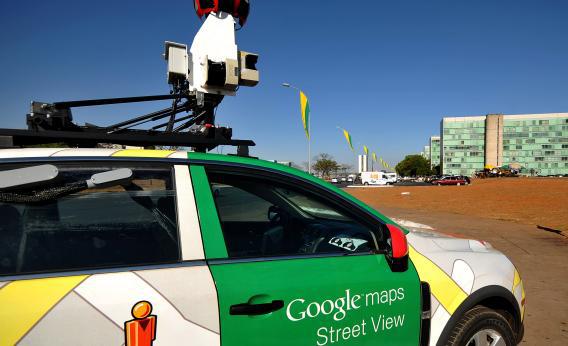Google has been raked over the proverbial coals this week over allegations that it doesn’t take Gmail users’ privacy seriously. But in Thailand, the company has been on the receiving end of a slightly more unorthodox kind of scrutiny.
On Tuesday, villagers in northern Thailand reportedly surrounded a Google maps car that was photographing the area and accused the driver of working for the government. The unwitting Google driver was apparently quizzed by the villagers before being taken to a Buddha statue and asked to swear before it that he was not a government snoop. If he lied in front of the Buddha’s image, he was told, he would face bad luck within a week.
According to AFP, the bizarre altercation occurred because the villagers assumed the car was somehow associated with a contentious dam project that has stirred local protests. A villager told the news agency that the vehicle has sparked suspicion because of the strange camera attached to its roof. But the locals later issued a statement on Facebook apologizing for the misunderstanding. In response, a Google spokesperson said the company “sometimes encounters unexpected challenges, and Street View has been no exception,” adding that it “abides by Thailand’s local laws, and only features imagery taken on public property.”
It’s not the first time Street View has become embroiled in controversy. Earlier this year, Google was forced to shell out $7 million following a privacy lawsuit over its interception of Wi-Fi data while its Street View cars traveled through the United States. The Czech Republic imposed a ban on Street View in 2010—though it was lifted in 2011—and the project has also been met with opposition from authorities in India, Australia, the United Kingdom, Switzerland, and other countries. In Germany, more than 240,000 people opted out of Street View and had their houses blurred out. Despite the controversy, however, Google has pressed on with its efforts to map the world—capturing all kinds of weird and wonderful images of everyday life in the process.
